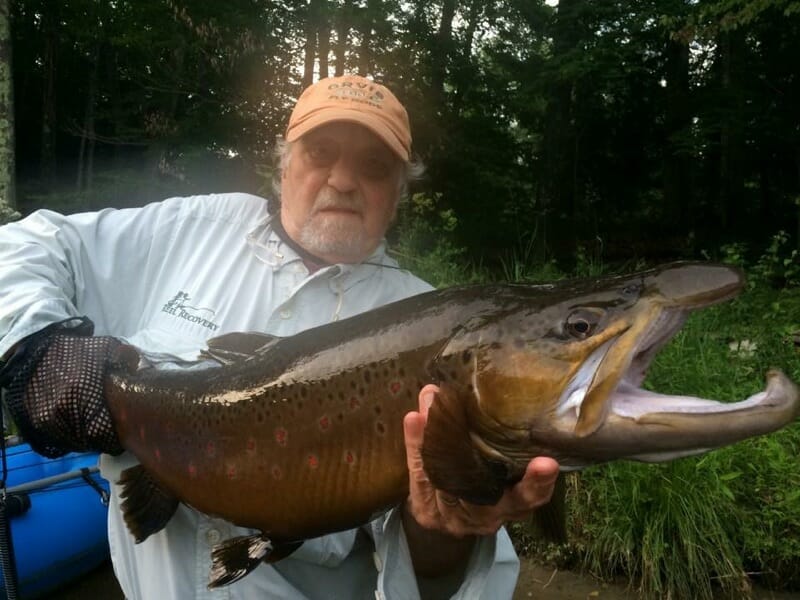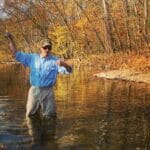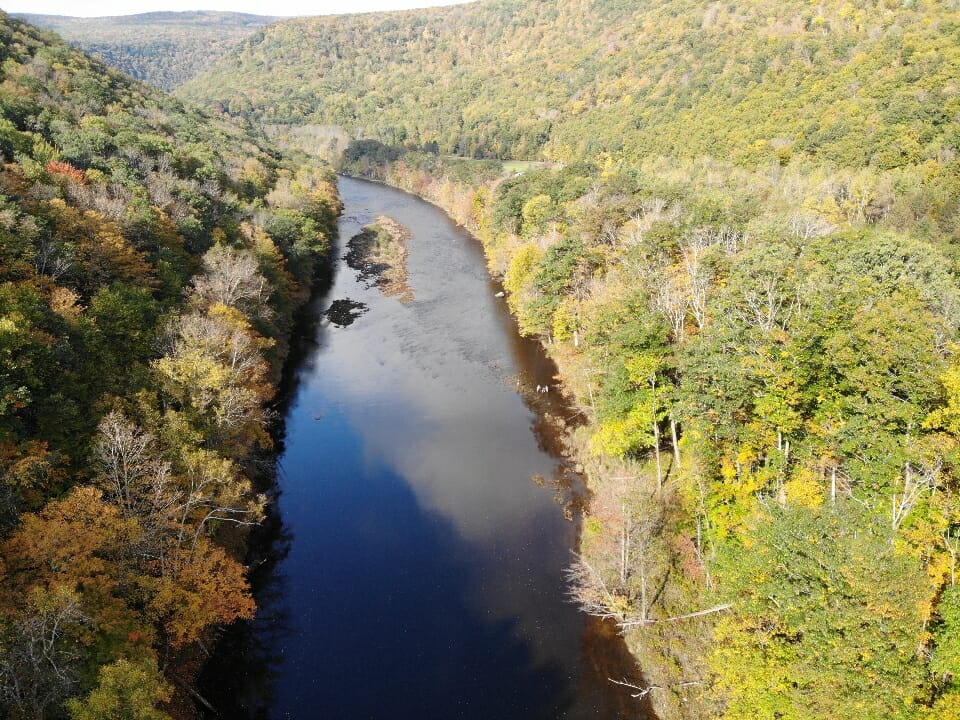By Chris Wood
Are we a conservation organization or a fishing club? That was the question for the Trout Unlimited Deerfield watershed chapter in northwestern Massachusetts when they formed almost ten years ago.
Kevin Parsons tells the story:
“A buddy approached me and said, ‘Let’s create a TU chapter.’
‘Fine,’ I said “You be the president, and I’ll be the secretary.’
I was new to fly fishing, and thought TU was a fishing club.”
Now Parsons is president and about to end his three-year term.
Then came Tropical Storm Irene. Ten inches of rain in a few hours caused the Deerfield and its tributaries to flow more than 40 times their normal rate. The river was a mess.
“Bob Anderson who was the conscience of the chapter said, ‘We are a conservation organization, damn it. We need to take care of the river.’ That ended the debate and began a remarkable story,” Kevin continued.
The 75-mile Deerfield river has 10 dams that bisect it as it flows through southern Vermont and northwestern Massachusetts. Members of the Deerfield chapter were catching brown trout smaller than those stocked by the state, and surmised wild trout were reproducing in the main stem of the river. They also were seeing redds.

(Past resident of the Deerfield Chapter, the late Jim Gariepy, with an exceptional brown trout from the Deerfield)
Every few decades, federal law requires that dams get relicensed. As part of that process, the chapter and MassWildlife and Fish and Wildlife Service urged the power company to study the river to determine if wild fish were present. The power company declined. So, the chapter took matters into their own hands. Michael Cole, a well-respected biologist and chapter member, said it would cost $10,000 for the study. The chapter had $4,000 in the bank. The Boston and Nor-East chapters kicked in some money. The MA-RI Council did, too. Neville Orsmond, the owner of the great TU Business, Thomas and Thomas, contributed a couple thousand dollars.
The study documented redds in the river. Redds that were exposed when the power company would drop its flows from 1,000 to 125 cubic feet per second in a matter of minutes. It only takes an hour for exposed redds to die. The chapter was stonewalled when they took the information to the state and the power company asking for a broader study.
Andy Danylchuk, a fisheries professor at the University of Massachusetts, came to the chapter meeting to discuss #keepemwet, and learned of the chapter’s work on the Deerfield. He and Neville Orsmond helped the chapter to elevate the issue to the Matt Beaton, the secretary of Energy and Environmental Affairs for the state.
Suddenly, the state was more interested in a more comprehensive study. The problem? Like many state agencies, they were cash-strapped and needed a specialized boat to conduct the electrofishing. A former guide in the Deerfield chapter donated his boat to the state.
The state is now a full-throated advocate for wild fish in the Deerfield and is evaluating managing a section of the river as a wild trout fishery. The federal government has now ordered the power company to assess the minimum flow needed in the Deerfield to keep the wild redds covered. The chapter is now compiling scientific data and photographic evidence of redds up and down the river. They are also conducting stream monitoring to better understand the importance of things such as winter flows to wild fish survival.
Younger anglers interested in science, including graduate students at nearby UMass, are joining the chapter. Chris Jackson, local guide and one of the founding board members stated, “If we stuck to a fishing club mentality we would have a bunch of old guys hanging around tying flies. Instead we have younger guys getting their feet wet and doing great work on the river. And that is because one of the older guys, Bob Anderson, and others, kept true to our mission.”
“We just went out and did it,” Kevin said to me. “We made things happen, took advantage of some opportunities, stayed nimble, and continue to make things happen.”
Thanks to the Deerfield chapter’s efforts, a section of the Deerfield river could become a wild trout fishery.
Conservation group or fishing club? Asked and answered.
Chris Wood is the president and CEO of Trout Unlimited. He lives in Washington, D.C., and works from TU’s headquarters in Arlington, Va.



